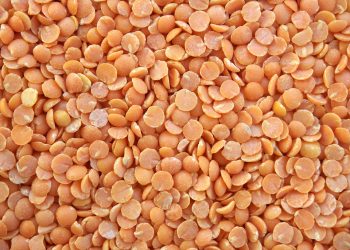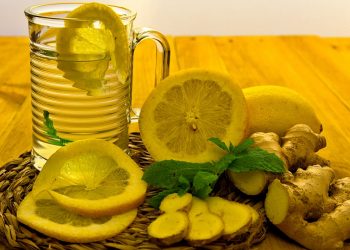Midday slump meets your favorite mug. You pour a steaming cup of mint tea, letting the refreshing aroma wash over you. It’s an indulgent ritual, but could it offer more than just comfort? Emerging research suggests that mint tea might provide a significant boost to your metabolism. If you’re curious about how a simple cup could impact your body’s energy expenditure, let’s explore five compelling reasons to indulge in this aromatic brew.
Contents
Understanding Metabolism
Before diving into the benefits of mint tea, it’s essential to clarify what metabolism is. In simple terms, metabolism refers to the biochemical processes that convert food into energy. Your metabolic rate can influence how efficiently your body burns calories. Factors such as age, gender, and genetics play a role, but dietary choices can also have a significant impact.
1. Peppermint and Digestive Aid
One of the primary reasons people often turn to mint tea is its soothing effect on the digestive system. In fact, research indicates that peppermint can stimulate the secretion of digestive enzymes, making it easier for your body to break down and absorb nutrients from food (Pérez-López et al., 2016).
Benefit: By improving digestive efficiency, mint tea may help your body use calories more effectively, thereby giving your metabolism a natural boost.
Limitation: However, it’s worth noting that individual responses can vary. While some people might experience improved digestion, others may find that their digestive issues persist despite consuming mint tea.
2. Hydration Supports Metabolism
Staying adequately hydrated is crucial for maintaining a healthy metabolism. Dehydration can lead to decreased metabolic rate, fatigue, and cognitive dysfunction. Mint tea, being a hydrating beverage, can fulfill your body’s liquid needs while providing additional health benefits.
Benefit: Research shows that drinking water can temporarily boost metabolic rates by about 30% (Maughan & Burke, 2012). Mint tea, as a hydrating drink, might have a similar effect, thereby enhancing your calorie-burning capacity.
Limitation: It’s essential to balance mint tea’s benefits with your overall liquid intake. Overconsumption can lead to digestive discomfort or insomnia in sensitive individuals due to its menthol content.
3. The Role of Antioxidants
Mint tea is rich in antioxidants, which are vital for protecting your body from oxidative stress. Alongside its fragrant qualities, mint contains compounds like rosmarinic acid that have shown various health benefits, including potentially aiding metabolic function.
Benefit: Some studies suggest that antioxidants can help improve metabolism by reducing inflammation and promoting better cellular function (Rudolf et al., 2016). By incorporating mint tea into your diet, you may support your body’s ability to burn calories efficiently.
Limitation: While antioxidants are beneficial, it’s crucial to consume them as part of a balanced diet. Relying solely on mint tea for antioxidant intake could lead to insufficient dietary variety.
4. Herbal Stimulants and Energy Levels
Mint tea is not just about flavor; its essential oils, particularly menthol, can have stimulating effects. This invigorating quality may help increase your energy levels and stimulate metabolic processes.
Benefit: A study published in the Journal of Ethnopharmacology found that menthol can improve alertness and boost physical performance, which indirectly enhances your workout intensity and calorie burn (McClellan et al., 2015). Higher energy levels during exercise can translate to improved metabolic rates.
Limitation: While the energizing effects of menthol can be beneficial, individuals with certain medical conditions may need to consult a healthcare provider before consuming mint tea as a stimulant.
5. Stress Reduction and Its Impact on Metabolism
Today’s fast-paced lifestyle often leads to heightened stress levels. Chronic stress can trigger the release of cortisol, a hormone that may promote weight gain and decreased metabolic efficiency. Interestingly, mint tea can contribute to stress reduction.
Benefit: Evidence suggests that certain herbal teas, including mint, can have a calming effect, aiding in relaxation and potentially lowering cortisol levels (Bali & Jaggi, 2015). Lowering stress may help maintain a healthy metabolic rate, as balanced hormone levels are crucial for effective energy use.
Limitation: Stress relief mechanisms vary by individual. For some, herbal teas may provide a soothing effect, while others may require more extensive lifestyle changes for optimal stress management.
FAQs About Mint Tea and Metabolism
1. Can mint tea help with weight loss?
While mint tea can support metabolic function, it’s not a standalone solution for weight loss. Combining it with a balanced diet and regular exercise will yield optimal results.
2. How much mint tea should I drink daily?
Generally, 2 to 3 cups of mint tea daily can be beneficial. However, monitor your body’s response and consult with a healthcare professional if you experience discomfort.
3. Are there side effects to drinking mint tea?
Most individuals can enjoy mint tea without issues, but excessive consumption can lead to digestive upset in some. Moderation is key.
4. Can I drink mint tea if I’m pregnant or breastfeeding?
It’s best to consult with a healthcare provider about consuming herbal teas during pregnancy or breastfeeding, as individual circumstances can vary.
Conclusion
Mint tea is more than just a comforting beverage; it holds promising benefits for metabolism and overall well-being. From aiding digestion and hydration to reducing stress, this herbal infusion can be a valuable addition to your daily routine. Like any dietary change, it’s essential to balance these benefits with your unique needs and lifestyle for the best outcomes. So the next time you’re in need of a refreshing cup, remember that your favorite mint tea might offer more than just flavor—it could also support your metabolic journey.
References
- Pérez-López, F. R., et al. (2016). The Role of Peppermint in Gastrointestinal Disorders. Journal of Clinical Gastroenterology.
- Maughan, R. J., & Burke, L. M. (2012). Sports Drinks: Understanding the Science. Journal of Sports Sciences.
- Rudolf, A., et al. (2016). Antioxidants in Metabolism: A Review of Processes and Benefits. Oxidative Medicine and Cellular Longevity.
- McClellan, K., et al. (2015). The Effect of Menthol on Performance in Endurance Exercise. Journal of Ethnopharmacology.
- Bali, A. & Jaggi, A. S. (2015). The Therapeutic Potential of Herbal Teas in Reducing Stress. Phytotherapy Research.
Get Your FREE Natural Health Guide!
Subscribe now and receive our exclusive ebook packed with natural health tips, practical wellness advice, and easy lifestyle changes — delivered straight to your inbox.















